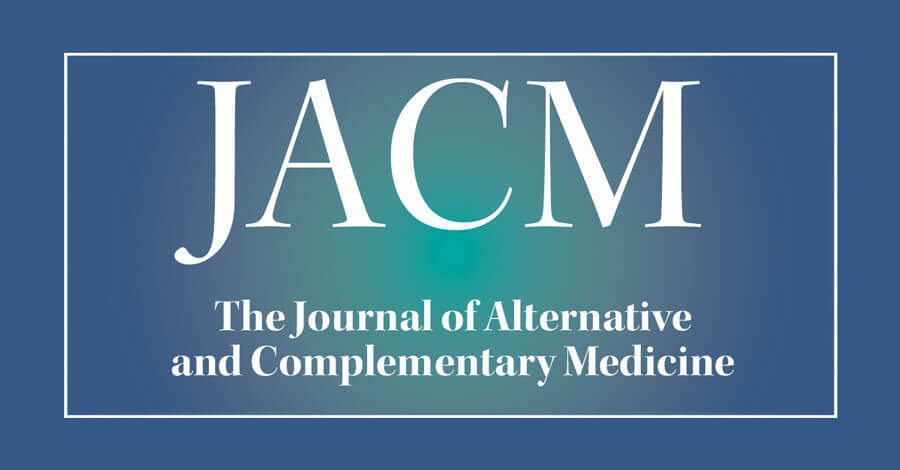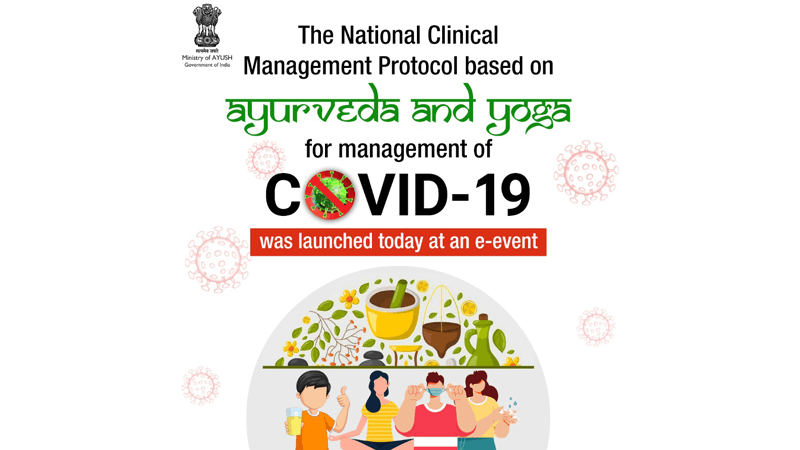The Current Pandemic, the Indian Health System, and the Role of Āyurveda
THE JOURNAL OF ALTERNATIVE AND COMPLEMENTARY MEDICINE - 2020
DOI: 10.1089/acm.2020.0370
Unnikrishnan Payyappallimana, PhD, Kishor Patwardhan, PhD, Prasad Mangalath, MD (Ay), Christian S. Kessler, MD, Rama Jayasundar, PhD, Anupama Kizhakkeveettil, MAOM, Antonio Morandi, MD, and Rammanohar Puthiyedath, MD (Ay)
The COVID-19 pandemic has fuelled global initiatives to develop vaccines and identify pharmacotherapies. The National Institute of Health Clinical Trials website currently lists 3489 clinical trials as of September 30, 2020. According to the World Health Organization (WHO) International Clinical Trials Registry Platform (ICTRP)1 website, ‘‘there is a need to ensure that all inform decisions about the health care of the available evidence.’’ Many drug candidates are being repurposed to manage COVID-19 by expedited observational studies and clinical trials across different populations worldwide, even as the search for vaccines is gathering momentum. The urgency of the current pandemic demands immediate and pragmatic clinical responses. A surprising dissonance between conventional medical research and clinical practice can be observed during this pandemic, challenging fundamental assumptions of evidence-based medicine and conventional biomedical practice. Might this development lead us to a pier of practice-based evidence (PBE) focusing on patient-centered care on compassionate grounds? Or does the global medical community need to strike a better balance between those two approaches to optimizing therapeutic responses to this pandemic? A recent editorial in PLOS Medicine reads, ‘‘It is surely time to turn to a more fit-for-purpose scientific paradigm. Complex adaptive systems theory proposes that precise quantification of particular cause–effect relationships is both impossible (because such relationships are not constant and cannot be meaningfully isolated) and unnecessary (because what matters is what emerges in a particular real-world situation).’’
Harnessing medical resources effectively and other safety measures is particularly critical for emerging countries, which are ill-equipped to meet the multifaceted challenges of an escalating pandemic. India is now the second most affected country globally after the United States and faces a challenging situation of inadequate medical infrastructures, insufficient health care investments, and social structures. The mainstream public health care machinery in India is already overwhelmed in major cities across the country. It has led to various pandemic response guidelines based on local realities in different Indian federal states. In such a scenario, it is essential to mobilize all available resources, including traditional medicine systems in India and in all countries with pluralistic health care systems.
According to the WHO traditional medicine strategy (2014–2023) midterm review report8 (based on the inputs from 179 countries), 88% of the 194 WHO member states have acknowledged the use of traditional and complementary medicine (which corresponds to 170 member states). However, there appear to be no systematic efforts globally or nationally — except in China — to explore the potential of traditional and integrative health care practices during the pandemic. In a recent development, the "Regional expert Committee on Traditional Medicine for COVID-19 formed by the World Health Organization (WHO), the Africa Centre for Disease Control and Prevention and the African Union Commission for Social Affairs has endorsed a protocol for phase III clinical trials of herbal medicine for COVID-19 as well as a charter and terms of reference for the establishment of a data and safety monitoring board for herbal medicine clinical trials.’’
The PBE building exercise that has been evoked by the COVID-19 pandemic puts all medical systems—conventional medicine and traditional medicine systems—on more or less level ground. An unprecedented opportunity is emerging for a constructive dialogue between the systems and coevolution and systematic collaboration within a synergistic framework. The PBE and the complexity research approaches, which are primary methods of Āyurveda and other traditional medical systems, need to complement the conventional research.
Traditional medicine systems such as Āyurveda have a highly developed theoretical and methodological framework to study new diseases and develop treatment guidelines based on rationale derived from clinical medicine principles and therapeutic experience since millennia. Epidemics have been described at large even in the classic canonical texts of Āyurveda and have provided a substantial repertoire of treatment strategies that not only have a long history of safe use but also have proven effcacious in similar pathologies.
The application of systematic protocols to formulate clinical practice guidelines from Āyurveda and their integration into COVID-19 patients’ treatment could fill gaps and unmet needs in the official health response systems. The WHO sanctions and lays down the criteria for using interventions not based on robust evidence, described as a ‘‘Monitored Emergency Use of Unregistered and Experimental Interventions (MEURI).’’ MEURI has been endorsed by the Indian Council of Medical Research (ICMR) as per the National Guidelines for Ethical Committees for Reviewing Biomedical and Research During the COVID Pandemic, which could, in principle, approve such Āyurveda studies with appropriate ethical reviews.
Āyurveda-Related Initiatives in India
The National Interdisciplinary Research and Development Task Force for AYUSH research in COVID-19 was constituted in India on April 2020 to streamline AYUSH’s COVID-19 response (Āyurveda, Yoga and Naturopathy, Unani, Siddha, and Homoeopathy). The primary rationale was that all AYUSH interventions for COVID-19 should be rigorously built on robust research for which systematic cooperation between AYUSH and biomedical physicians and scientists is necessary. Clinical trials have been initiated to evaluate the efficacy of Asvagandha (Withania somnifera (L.) Dunal) and AYUSH 64 in prophylaxis, Guduci/Pippali (Tinospora cordifolia (Thunb.) Miers/Piper longum L.), and Yashtimadhu (Glycyrrhiza glabra L.) for the management of COVID-19. Clinical Trials Registry India lists 107 studies (as on August 20, 2020) on Āyurveda initiated by various institutions using the guidelines issued by the Ministry of AYUSH. General clinical practice guidelines have also been formulated.
➔ Continua a leggere sull'articolo in PDF


 Protocollo nazionale indiano COVID-19 basato su Āyurveda e Yoga
Protocollo nazionale indiano COVID-19 basato su Āyurveda e Yoga